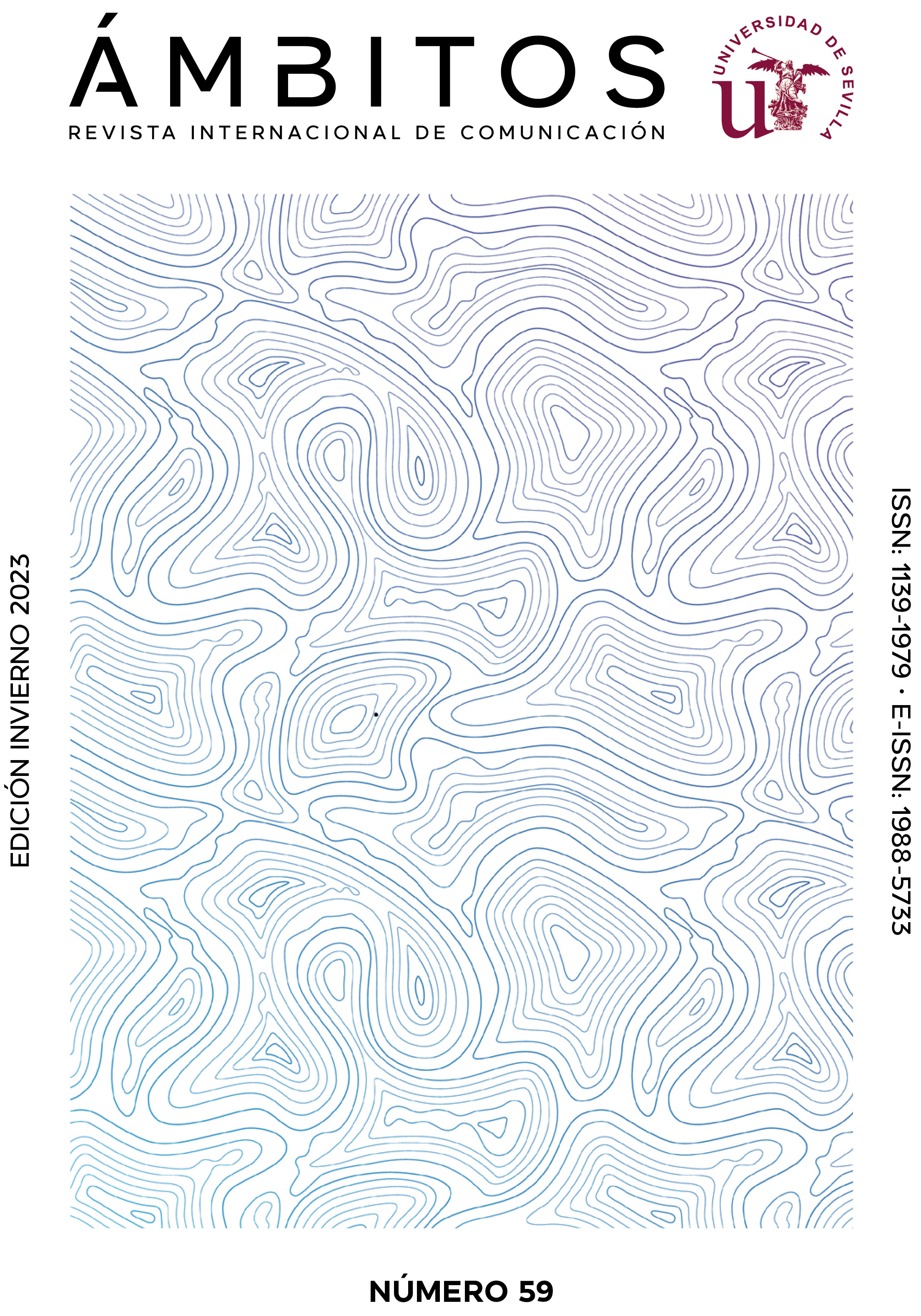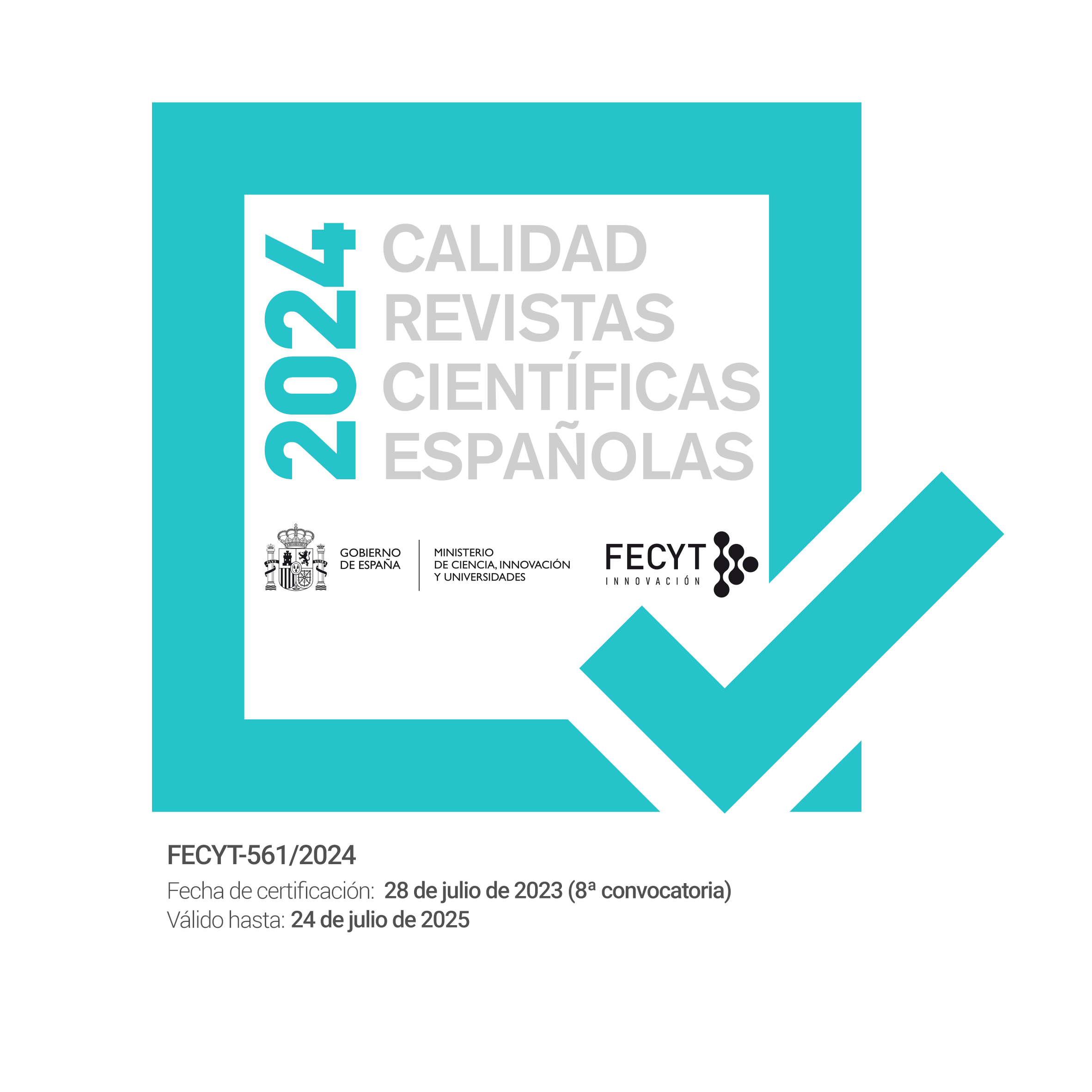Motherhoods in conflict and mobility through Marsella (Belén Macías, 2014)
DOI:
https://doi.org/10.12795/Ambitos.2023.i59.04Keywords:
mobility, motherhood, Spanish cinema, Marsella, filmmakerAbstract
The motherhood role models most popularized in the media since the late 80s urged women to sacrifice not only their professional careers, but also their identity as individuals for their children while, in contradiction, encouraging them to be ambitious and competitive in a traditionally masculinized work environment. This model has been questioned in audio visual fiction during the last decade, especially through proposals made by women filmmakers thanks to their gradual incorporation into the film industry. This article analyses, under the framework of Film Studies and Feminist Studies, the representation of motherhood and mobility through Marsella (Belén Macias, 2014), in which foster motherhood and motherhood of origin come into conflict to explore diversity and break ideals on a scenario of mobility that forces the limits of the characters. From a feminine point of view, the film examines that motherhood lived in the so-called non-places that seeks the absent fatherhood, highlighting the contrast between two different conceptions under the same essence: the tapestry of the figure of the mother.
Downloads
References
Badinter, E. (2011). La mujer y la madre. La esfera de los libros.
Belén Macías reflexiona sobre la falta de oportunidades en «Marsella». (2013, 12 de agosto). El Diario.
https://www.eldiario.es/1_5817b0
Camporesi, V. (2001). «El país patas arriba; hasta tú te estás contagiando Vámonos, Bárbara y la Transición democrática». En Josetxo Cerdán y Marina Díaz López (eds.), Cecilia Bartolomé: El encanto de la lógica (53-62). L’ Alternativa / Ocho y Medio.
Ciller, C. (2021). Algo personal: una experiencia de maternidad. En Pilar Carrera y Carmen Ciller (eds.), Maternidades. Políticas de la representación (113-127). Cátedra.
De Beauvoir, S. (2005). El segundo sexo. Cátedra.
Ley 26/2015, de 28 de julio, de modificación del sistema de protección a la infancia y a la adolescencia. BOE, no. 180, 2015: 64544-64613. Agencia Estatal Boletín Oficial del Estado,
https://www.boe.es/boe/dias/2015/07/29/pdfs/BOE-A-2015-8470.pdf
Fernández, A. M. (1994). La mujer de la ilusión. Pactos y contratos entre hombres y mujeres. Paidós.
Giberti, E. (2006). El Nombre de la Madre de Origen. Revista Actualidad Psicológica, 340.
https://evagiberti.com/el-nombre-de-la-madre-de-origen/
Guarinos, V. (2008). Mujer y cine. En T. Núñez Domínguez y F. Loscertales Abril (Eds.), Los medios de comunicación con mirada de género (pp. 103-120). Instituto Andaluz de la Mujer, Consejería para la Igualdad y Bienestar Social (Junta de Andalucía).
Imaz, E. (2010). Convertirse en madre. Etnografía del tiempo de gestación. Cátedra.
Imbert, G. (2019). Crisis de valores en el cine posmoderno. (Más allá de los límites). Cátedra.
Jiménez, M. y Salvadó, A. (2017). Belén Macías: madres en búsqueda de una identidad. En Francisco A. Zurián (ed.), Miradas de mujer: cineastas españolas para el siglo XXI (Del 2000 al 2015) (pp. 179-192). Fundamentos.
Martín Alegre, S. (2008). De padre a hijo. la transmisión del discurso patriarcal en el cine de Hollywood (1997-2007). En Isabel Clúa (ed.), Género y cultura popular (pp. 149-174). Edicions UAB.
Menéndez Menéndez, I. y Fernández Morales, M. (2020). ¿Madre no hay más que una? Maternidades reales, mágicas y simbólicas en Juego de tronos. En Mariona Visa, María Carmen Figuerola y Erica Briones (eds.), La maternidad en la ficción contemporánea (pp. 293-307). Peter Lang.
Menéndez Menéndez, I. (2017). A girl has no name: género, poder y violencia en Game of Thrones. En Isabel Menéndez Menéndez y Paula Illera Miguel (eds.), Guerras simbólicas. El papel del audiovisual en la lucha contra la violencia de género (pp. 117-126). Ediciones UIB.
Oroz, E. (2016). ‘Nuestra Misión’ (1940): Maternidad simbólica y regeneración nacional en la propaganda cinematográfica de la Sección Femenina. Letras Femeninas, 42(1), 86-100.
https://doi.org/10.14321/letrfeme.42.1.0086
Rich, A. (2019). Nacemos de mujer. La maternidad como experiencia e institución. Traficantes de sueños.
Ruddick, S. (1989). Maternal Thinking: Toward a Politics of Peace. Beacon Press.
Tarducci, M. (2008). Maternidades en el siglo XXI. Espacio.
Tarducci, M. (2011). Algunas reflexiones sobre la antropología del parentesco a propósito de Simone de Beauvoir. En Alejandra Ciriza (ed.), En memoria de Simone de Beauvoir. Herencias, debates, lecturas inesperadas (pp. 1-10). Leviatán.
Viñas Álvarez, D. (2003). Nuevos modelos de maternidad. En Conselleria de Sanitat (ed.), Qualitat per a la dona davant el nou mil·lenni. VI Trobada de Comares de la Comunitat Valenciana (pp. 41-53). Generalitat valenciana.
Zecchi, B. (2014). Desenfocadas. Cineastas españolas y discursos de género. Icaria.
Downloads
Published
How to Cite
Issue
Section
License
Copyright (c) 2023 Sonia Dueñas Mohedas, Natalia Martínez Pérez

This work is licensed under a Creative Commons Attribution-NonCommercial-ShareAlike 4.0 International License.
Ámbitos. Revista Internacional de Comunicación is an open access journal, which means that all content is freely available at no charge to the user or their institution. Users may read, download, copy, distribute, distribute, print, search or link to the full text of articles, or use them for any other lawful purpose, without seeking prior permission from the publisher or author. This definition of open access is in accordance with the Budapest Open Access Initiative (BOAI).

Unless otherwise noted, all content in the electronic edition is distributed under a "Creative Commons Attribution-NonCommercial-ShareAlike 4.0 International License". You can consult the informative version and legal text of the licence here. This should be expressly stated in this way where necessary.
In case of acceptance of the manuscript, the authors cede the rights of the work for its publication to Ámbitos. Revista Internacional de Comunicación under the Attribution-NonCommercial-ShareAlike 4.0 International license contract (CC BY-NC-SA 4.0). The authors retain copyright and third parties are authorised to copy, distribute and make use of the work, provided they comply with the terms and conditions set out in the licence
- Cite the authorship and the original source of publication (journal, publisher and URL of the work).
- Do not use them for commercial purposes.
- If you remix, transform or create from the material, you must release your contributions under the same license as the original.
More information can be found at https://creativecommons.org/licenses/by-nc-sa/4.0/deed.es


















